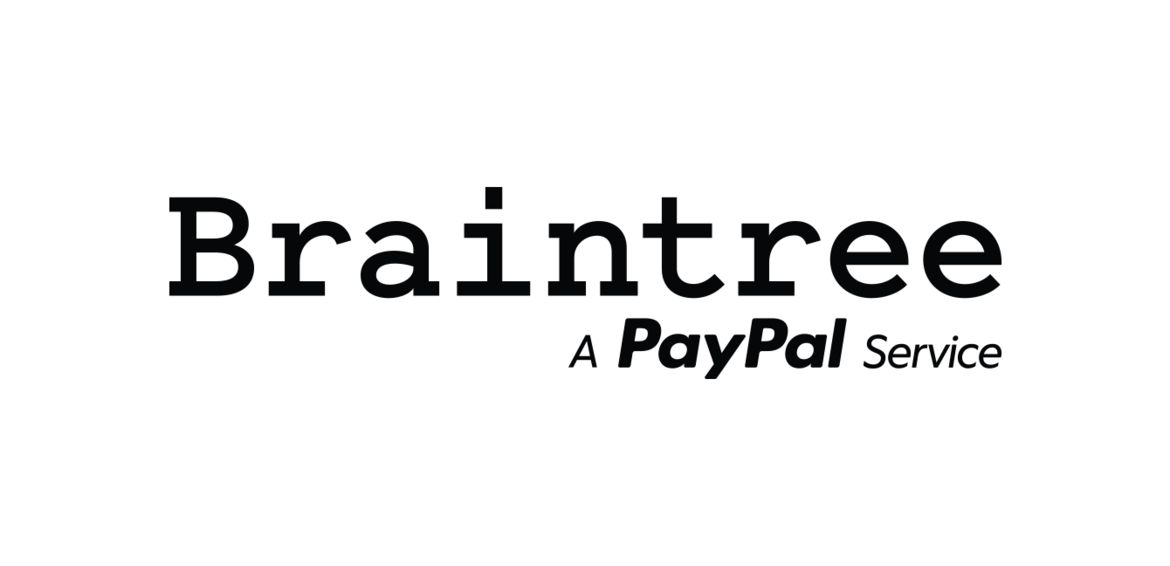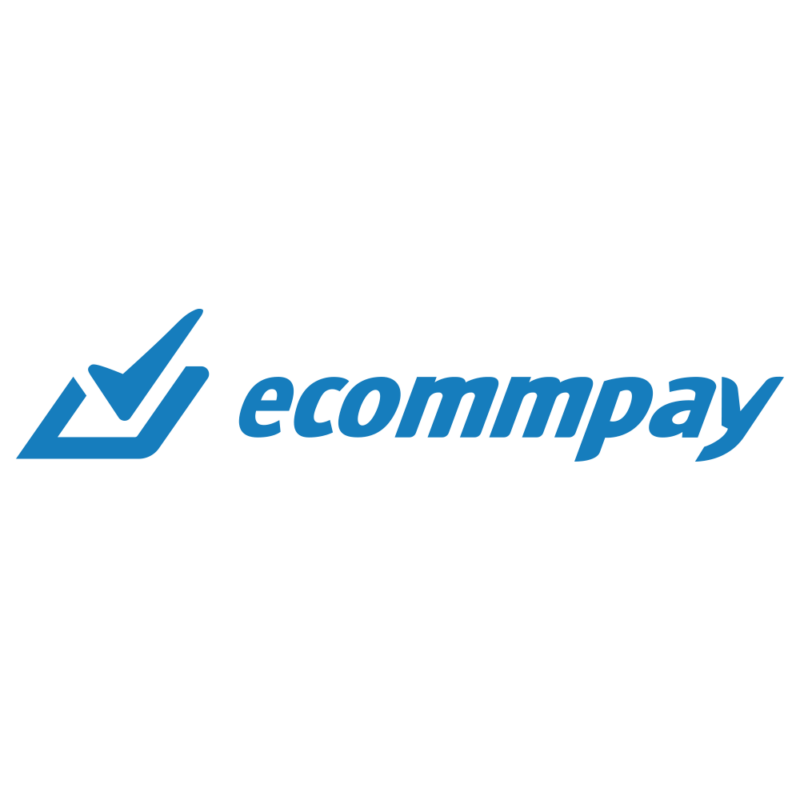If you’re looking to take payments online, you’ll need a payment gateway. There are so many options out there so it can be pretty overwhelming narrowing down your choices.
At Cardswitcher, we are experts in card processing, so we know a thing or two about payment gateways! This post rounds up the top 10 payment gateway providers in the UK in 2024. We’ve discussed all the important things you need to know about each provider including:
- The costs.
- What payment methods it lets you offer your customers.
- How you integrate the checkout with your site.
- What third-party integrations it works with.
Read on to see which payment gateway would be the best fit for your business.
Note: Prices correct as of 19/3/24. We are partnered with some of the providers on this list. This post doesn’t contain any affiliate links so we won’t make any money from any of the links on the post. We only make money if you use Cardswitcher to compare card processing costs and choose one of the providers there.
Best payment gateways at a glance
Here are the payment gateway providers we examine in this post and what they are most notable for.
1.
Stripe- best for speedy checkout
2.
Shopify- best for Shopify shops
3.
Adyen- best for multinational companies
4.
Braintree- best for selling luxury items
5.
Revolut- best for low transaction fees
6.
GoCardless- best for direct debits
7.
Opayo- best for transport industry
8.
Square- best for small teams
9.
WorldPay- best for businesses with high turnover
10.
Ecommpay- best for fraud prevention tools
What is a payment gateway?
A payment gateway is software technology that acts as a middleman between customers and businesses when a customer purchases goods or services.
It authenticates the payments and transmits details of the transaction securely between the different players involved in card processing.
It operates both online and in brick-and-mortar stores. Online it is built into a virtual terminal and offline, it’s built into the card terminal itself.
We go into more detail about what a payment gateway is in this post.
Overview of the best payment gateway providers in the UK
This table offers an easy-to-compare of some important features of each payment gateway provider.
| Stripe | Shopify | Adyen | Braintree | Revolut | GoCardless | Opayo | Square | WorldPay | Ecommpay | |
|---|---|---|---|---|---|---|---|---|---|---|
| Star Rating* | 4.3 | 4.1 | 4 | 4 | 4 | 4 | 3.8 | 3.75 | 3.75 | 3.4 |
| Contract Required? | No | Only for Shopify Plus (1 or 3 years) | No | No | No | No | Rolling, 3 month cancellation period | No | 18 months | No |
| Monthly Fee | None | From £19 (includes Shopify store) | None | None | None | None | £25 for 350 transactions or £0 with 12p/gateway click | None | From £19.95 | Custom |
| Transaction Fees | 1.2-2.5% + 20p | 1.5-2.5% + 25p | Various + 11p | 1.9-2.9% + 20p | 1-2.8% + 20p | 1-2.4% + 20p | From 0.99% or from 1.99% | 1.4-2.5% + 25p | 1.5% | Custom |
| Checkout Integrations | Self-hosted, API | Hosted, self-hosted, API | Self-hosted, API | Self-hosted | Self-hosted, API | Hosted, self-hosted, API | Hosted, self-hosted, API | Hosted, self-hosted, API | Hosted, self-hosted, API | Hosted, self-hosted, API |
*Note: To calculate our star rating, behind-the-scenes we have marked each provider on the contract flexibility, costs, checkout integration ease, payment methods accepted, third-party integration compatibility, and customer support. We calculated the average of these scores out of 5 stars. The rating is a general rating for overall comparison and you should still take into account your own business’s needs when evaluating each payment gateway provider.
Millions of customers around the world use Stripe because it has one of the largest sets of tools available to carry out payment processing and data analysis. It is a well-known, trustworthy brand.
With Stripe, your customers can pay with all major credit and debit cards, digital wallets, Afterpay (Buy Now Pay Later), and some more niche options if you need them. They offer payment links and something called “Link” which is a one-click checkout, which speeds up the checkout process for your customers.
You have endless customisable checkout options with Stripe. You can choose the simple route with a hosted gateway called Stripe Checkout. Or you can use their API to integrate everything onto your own website. There are plenty of third party integration options, like shopping carts, invoicing systems, email systems, and more.
Best suited for:
-
Large companies who take high volumes of sales.
-
Companies who need a really customisable tool with lots of integrations.
Pricing
With all these features and for such a well-known name, you can expect to pay a bit of a premium for Stripe’s payment gateway compared to some other providers on this list.
| Payment Type | Fee |
|---|---|
| Standard UK credit/debit cards | 1.5% + 20p |
| Premium UK credit/debit cards | 1.9% + 20p |
| European Economic Area Cards | 2.5% + 20p (+2% if currency conversion required) |
| International Cards | 3.25% + 20p (+2% if currency conversion required) |
| Link (one-click checkout) | 1.2% + 20p for UK cards |
| Settle and pay out in additional currencies | 1% |
| Adaptive acceptance** | 0.08% per successful card charge |
| Local payment methods (e.g. WeChat Pay, AliPay, Blik) | 1% |
| Buy Now Pay Later | From 2.99% + 35p |
| Instant payouts | 1% |
| Disputes | £20 per dispute |
** Adaptive acceptance is a machine learning model that helps increase revenue by improving authorisation rates in real-time.
There are many other custom fees you may need to pay so be sure to check out Stripe’s pricing page to see which are applicable to you.
Strengths
-
Very transparent pricing.
-
Different integration options depending on you/your developer’s coding experience.
-
Fantastic UX for desktop and mobile payments.
-
Well-known, trusted brand name.
-
Runs seamlessly with endless third-party integrations like accountancy software, etc.
Weaknesses
-
Fees are quite expensive compared to some other providers.
-
There have been some reports of accounts being frozen.
-
There have been some complaints about the quality of customer service.
-
You need a good developer to make the most of the integrations with Stripe.
Shopify Payments is an excellent option if you plan to set up a Shopify store. As soon as you create a Shopify store, you’re already set up to accept payments. They use Stripe technology, but it’s all integrated into Shopify’s dashboard under Shopify’s name, so it’s more merchant-friendly.
Shopify allows you to accept a very extensive array of accepted payment methods. You can take credit cards, PayPal, Amazon Pay, Apple Pay, Google Pay, and even cryptocurrency - it just depends on what you put in your payment provider settings.
You can make everything super intuitive for you and the user. Shopify has a library of 8000+ apps you can link into the site. You can also choose from Shopify’s expansive library of site themes or build a custom page and checkout with the Shopify API. It’s so flexible.
Best suited for:
-
Shopify site users (you can only use it with a Shopify website).
Pricing
Shopify lists their pricing for different plans on their site. You can try it for free for 3 days so you can see if the plan is right for you. We’ve outlined the basics you need to know below:
| Basic (solo entrepeneurs) | Shopify (small teams) | Advanced (larger enterprises) | |
|---|---|---|---|
| Monthly fee (if paying monthly) | £25 | £65 | £344 |
| Monthly equivalent fee (if paid in full yearly) | £19 | £49 | £259 |
| Processing fee online | 2.5% + 25p | 1.7% + 25p | 1.5% + 25p |
| Third party payment provider fee | 2% | 1% | 0.6% |
They also offer alternative online payment solutions, like the “Starter” plan at £5/month which lets you sell through social media and messaging apps, or a simple online store.
Strengths
-
Keep everything in one place - no need to integrate a separate gateway into your site.
-
Costs are more predictable with flat-rate pricing.
-
99.99% uptime.
-
Shopify checkouts convert 15% better than other ecommerce platforms.
-
Activate Shop Pay to allow customers to save their shipping/payment info for quicker checkouts next time.
Weaknesses
-
High transaction fees.
-
Some reports of accounts being frozen.
-
No option for instant payout.
-
Can only be used with a Shopify online store.
Adyen is another big player in the payment gateway market. They are used by prominent companies like Spotify, eBay, and Microsoft.
With Adyen, your customers can pay online on a regular web browser on all devices, in-app, or pay by link. This flexibility is great if you sell online across multiple platforms. Adyen can accept many payment methods, including many local options like WeChat Pay, so if you operate on a global scale, you can offer your customers tailored payment options.
They offer various options for integrating Adyen: total ready-made drop-in, pre-built components, API for complete customisation, and plugins that are compatible with their 34+ partners, like Magento and Salesforce.
Best suited for:
-
Large businesses with high turnover.
-
Companies who work on a global scale.
Pricing
Adyen’s pricing structure is complicated, as it depends on the specific payment methods. They use Interchange Plus pricing, and you’ll need a merchant bank account to take advantage of this.
In general, you’ll pay 11p + a fixed processing fee for that particular payment method. We won’t list every option here, so you can see it all on their site.
They don’t have any set up or monthly fees.
Strengths
-
Handy single platform to review all your payment processing stats.
-
Accepts a very diverse range of payment methods.
-
Excellent security features.
-
Built-in risk management tool to combat fraud.
Weaknesses
-
Pricing structure is very complicated.
-
Better suited to large enterprises rather than small businesses.
-
Need to meet the monthly minimum turnover or pay a fee.
Braintree is a PayPal service, used and trusted by big brands like Uber, Airbnb, and Skyscanner. They heavily promote their conversion-boosting UX and their fraud prevention systems, which makes it a particularly great offering for businesses selling high-value goods and services.
With Braintree, they are all about boosting those conversions so your customers are offered multiple ways to pay. Alongside the regular credit and debit cards, they can use all digital wallet options, PayPal, local payment methods, and Venmo (if your customer is US-based). They support 130 currencies across 44 countries, great for international businesses.
They pride themselves on being a flexible, customisable platform. They offer a self-hosted gateway with drop-in UI, or a custom UI for your savvy developers to work with. It’s a solution definitely based at those who are more technologically proficient. Braintree works with many third-party tools and has a fantastic reporting tool built-in.
Best suited for:
-
Merchants selling high-value, luxury items.
-
Merchants selling subscription-based products.
Pricing
Braintree’s pricing is pretty straightforward, with most of it available on their website. They don’t have a minimum monthly charge, monthly fees, set-up fees, or any other hidden fees.
| UK credit/debit cards | Non-UK credit/debit cards | AMEX | Chargebacks |
|---|---|---|---|
| 1.9% + 20p | 2.9% + 20p | 2.4% + 20p *** | £20 |
**Unless you have an AMEX account in which case it is only 20p.
Interchange Plus pricing is available for European merchants, and if you process over £50k a month, you can speak to them about special discounts.
If you’d like to add on 3D Secure and Fraud Protection Advanced, you need to pay extra, and these prices aren’t on their site, so you need to ask them directly.
Strengths
-
Highly customisable interface to suit your business needs.
-
Great reporting tool.
-
Recurring billing option.
-
Automatically updates card details to avoid sales loss if stored cards have expired.
-
Technical support team has glowing reviews.
Weaknesses
-
Need a good developer to integrate Braintree into your site.
-
Your funds can be held onto for lengthy periods.
-
Need to pay extra for advanced fraud tools like 3D secure.
Revolut is a neobank. They offer loads of solutions for businesses big and small to take payments both in-person and online. Revolut’s payment gateway is a great option if you already bank with Revolut.
With Revolut, your customers can pay in 25+ currencies using a variety of payment methods, including credit/debit cards, digital wallets, Revolut Pay (for Revolut account holders), Tap to Pay on iPhone, and QR code. They also offer payment links. These varied options are great for modern consumers who want more flexibility.
You can integrate the Revolut payment gateway with the big player ecommerce systems, like Woocommerce, Magento, Opencart, Shopify, and Prestashop. They offer API widgets and plugins to set up the payment gateway on your own website seamlessly.
Best suited for:
-
Existing Revolut business customers.
-
Businesses who regularly take low value transactions.
Pricing
Revolut’s pricing is easy to find on their site and for good reason - they offer great rates! Below is a summary of their fees for taking payments online:
| Payment type | Fee |
|---|---|
| UK consumer cards | 1% + 20p |
| Internation and commercial cards | 2.8% + 20p |
| Revolut Pay | 1% + 20p |
| Easy Bank Transfer | 1% + 20p |
There are no contracts or monthly costs - you just pay per transaction. They offer custom plans if you need something more specific.
Strengths
-
Next-day settlement.
-
One dashboard to track all your payment information.
-
Competitive fees - some of the cheapest on this list!
-
Great suite of financial products and services to integrate.
Weaknesses
-
Fewer currencies supported compared to competitors.
-
Fewer payment methods supported compared to competitors.
-
Limited reporting options.
GoCardless is one of the more unique options on the list in that they don’t process card payments - they facilitate direct bank payments. Customers click on a link you send them, enter personal details, are directed to their banking app, and approve the transaction through there. It’s smooth, simple, and free of card processing fees.
You can collect payments from 30+ countries, either into a local bank account you have in that country, or into your existing UK bank account. You can do one-off transactions or set up automated recurring payments. Everything is done straight between banks, so no other payment methods are supported.
They also offer a Bank Account Data service which allows you to access your customer’s bank account information so you can make better informed decisions when it comes to lending and managing your accounts. Customers give permission to securely share details of their bank account, like their balance.
GoCardless has an online dashboard ready to use, or you can integrate with any of their 350+ software partners, which is great if you already have a reporting system in place.
Best suited for:
-
Charities.
-
Companies who invoice for payments.
-
Companies who sell subscriptions.
-
Lenders.
Pricing
GoCardless estimates that you save up to 54% paying directly from bank to bank rather than via card. Currently, they're advertising no transaction fees for the first 90 days. Here are their main packages from their pricing page:
| Standard | Advanced | Pro | |
|---|---|---|---|
| UK transaction fee | 1% + 20p | 1.25% + 20p | 1.4% + 20p |
| International transaction fee | 2% + 20p | 2.25% + 20p | 2.4% + 20p |
If you’re interested in the Bank Account Data service, this is the pricing:
| Free | Pay as you go | Custom | |
|---|---|---|---|
| Monthly cost | Free for 50 connections/month | £100 (+25p per connection) | Contact directly for custom quote |
Strengths
-
Easy to take direct debits even if the dates or amounts change.
-
Automatically retries failed payments on a date it determines is best - recovers 70% of failed payments!
-
Instant confirmation of payments.
-
Easy to integrate with 350+ partner softwares.
Weaknesses
-
Not as suitable for online stores.
-
Some customers may not like this method and prefer to pay with a credit card.
-
Some fraud protection features are only available in the top-tier package.

7. Opayo (by Elavon)
Our rating
Pricing
£0-25 per month, from 0.99-1.99% transaction, 0-12p gateway click-fee
Opayo was formerly named SagePay, a name that will be familiar to many merchants in the UK. They are now owned by financial services firm “Elavon”. Opayo operates in 36 countries worldwide, and processes 6.6 billion transactions for 2 million customers.
With Opayo, you can set up both a merchant account and a payment gateway, keeping your set-up process simple. You can offer pay by link to your customers and you can use a virtual terminal to take payments over the phone or by mail. They accept all major cards and PayPal too, as well as supporting 100+ currencies.
You can easily integrate your Opayo payment gateway with your ecommerce platform - they work with all major providers, like Magento, Salesforce, Shopify, and WooCommerce. Setting up the checkout page is simple with a hosted payment page or a tailored API to keep everything on your own site.
Opayo has a niche focus on airlines, hospitality, transportation, and retail, so if your business falls into these categories, then it’s worth considering.
Best suited for:
-
Hospitality
-
Retail
-
Transport / airlines
Pricing
Opayo offers two plans for accepting payments online. You can choose the fixed plan or the pay-as-you go plan.
| Fixed Plan | Pay As You Go Plan | |
|---|---|---|
| Sign-up fee | £0 | £99 |
| Monthly gateway fee | £25 | £0 |
| Transaction fee | From 0.99% | From 1.99% |
| Other | 350 free transactions | 12p gateway click-fee |
The fixed plan is best if you work throughout the year. The pay-as-you-go plan is best if your business is seasonal or more of a side hustle which you pick up when you are able to. The advertised transaction fee is subject to your card turnover, so reach out to them directly for a proper quote.
Both plans include your payment gateway, merchant account, ability to accept payments online/over the phone/by mail, 24/7 technical support, and enhanced fraud screening/PCI DSS support. The main difference is just whether you want to have year-round consistent access.
Strengths
-
Fixed or pay-as-you-go options means you can choose an option that suits your business best.
-
They offer a recurring payments feature.
-
48 hour funds settlement (or pay extra for same or next-day payments).
-
24/7 technical troubleshooting customer support.
-
Online portal to view and manage real-time business reports, card transactions, and more.
Weaknesses
-
3 month cancellation period on contracts.
-
Not suitable for low volume businesses.
-
Other providers offer plans with no sign up or monthly fees.
Square is best known for their industry-disrupting Square card reader, but they do online payments too. It’s not technically a payment gateway, but they do the job of taking online payments effectively, so we don’t need to worry about dictionary definitions here!
Square doesn’t offer as many payment methods as some providers on this list, but this isn’t necessarily a problem depending on your business. They take VISA, Mastercard, AMEX, Google Pay and Apple Pay. You can even take payments in your app if you have one, not just on your website.
It’s really easy to set up online payment acceptance with Square, so you need not worry if you don’t have a team of tech gurus behind you. Square gives you the option of a pre-built Square Checkout API, or you can build from scratch with the Square Web Payments SDK option if you want a bit more customisation. Square can work alongside your existing software for minimal disruption, so if you already have an online store provider, they can link it all together with ease.
Best suited for:
-
Smaller businesses who need predictable fees.
-
Businesses who sell in-app.
-
Businesses without developers on hand.
Pricing
For businesses processing less than £250k per year, Square’s pricing is super simple. You pay:
- 1.4% + 25p for UK cards.
- 2.5% + 25p for non-UK cards.
If you earn more than £250k, speak to Square directly for a custom quote.
Strengths
-
Simple pricing system makes costs more predictable.
-
Easy to integrate with third-party systems - often just a few clicks of a button.
-
Lots of add-on options like Customers API and Inventory API to track different areas of your business for clearer reporting.
Weaknesses
-
High transaction fees compared to some other providers.
-
Some small businesses report accounts have been frozen and funds withheld.
-
Lacks some features, like subscription tools.
WorldPay is one of the most widely used payment gateways on the planet. They are a trusted brand with one of the most flexible offerings available.
They accept over 300 payment methods in 126 currencies, making them the most versatile offering on our list. They accept all major credit and debit cards, digital wallets, they have a built-in pay by link system, and offer a virtual terminal.
You can get a regular hosted checkout page with WorldPay or use an API-hosted version to tweak the checkout to look exactly the way you want it. The default design looks quite old fashioned compared to some of the fresher companies on the market, but WorldPay’s well-roundedness means they can get away with this. It’s easy to fit your WorldPay checkout around any existing apps you use to streamline the payment process.
Best suited for:
-
Large businesses who make high turnover.
-
Businesses who operate in many different countries.
Pricing
WorldPay’s pricing model allows you to pick and choose what extras you want. This does make making sense of their fees a bit tricky. We’ve outlined the basics you need to know below.
There are 3 main payment gateway packages:
| Standard | Advanced | Enterprise |
|---|---|---|
| 350 transactions/month | 850 transactions/month | Bespoke |
| £19.95/month | £45/month | Bespoke |
There is also a £29.99 per year PCI Compliance charge (you’re paying for the creme de la creme, but it does sting having this additional charge). It’s £9.99/month if you want the option to take phone payments too, and £9.95/month to include a virtual terminal.
These costs don’t actually include the transaction fees though! You’re charged 1.5% per transaction on Mastercard and Visa cards if you make less than £300,000 per year. There’s a £15 minimum service charge and it costs £20 for chargebacks.
Strengths
-
Covers the full spectrum of payment methods.
-
Great shopping cart functionality.
-
Enhanced security features.
-
24/7 365 day customer service support.
-
Next day funds settlement.
Weaknesses
-
Contracts required and early termination fees.
-
Setting up the API gateway is complicated unless you have a well-versed developer.
-
Not a great option for smaller businesses.
Ecommpay is a great payment gateway that’s user-friendly and offers great customer support.
Your customers can use any of 100 payment options with the Ecommpay payment gateway. They can pay by card, PayPal, digital wallets, local options like Giropay, payment links, set up subscriptions, and PayPal In 3 Buy Now Pay Later service.
You can use ready-made plugins to integrate your ecommerce platform with ease, including WooCommerce, Magento, Opencart, Salesforce Commerce Cloud, and Prestashop. There are loads of options for integrating the gateway into your site. There is a full API ready-to-go, or you can use various kits to set up on your website or mobile app.
Best suited for:
-
Selling high-value luxury goods
Pricing
Ecommpay doesn't advertise pricing on their site. You need to contact them directly and they give you a custom quote based on the financial risk your business poses. You can read more on their pricing info page.
Strengths
-
99.9% uptime
-
Express checkout features - PayPal Express saves the customer hassle of inputting all information when purchasing, speeding things up.
-
Award winners in combating fraud.
-
Reliable customer support team.
Weaknesses
-
Reporting system could be improved.
-
No pricing advertised.
Verdict
We can’t say with 100% conviction that one payment gateway provider is the best. It all depends on your business and your particular needs. Some are great if you have a very high turnover and operate in loads of countries. Some are better if you operate more sporadically.
We’ve categorised each payment gateway provider below so you can see which options suit you most.
You have a high turnover and operate in multiple countries.
Stripe, Shopify, Adyen, Opayo, WorldPay.
You need to offer a really wide range of payment methods.
Stripe, Shopify, Adyen, WorldPay, Ecommpay.
You sell seasonally.
Revolut, Opayo.
You sell high-value luxury goods.
Braintree, WorldPay, Ecommpay.
You need something that offers lots of third-party integrations.
Stripe, WorldPay.
You sell subscriptions/send invoices for work.
GoCardless.
You sell in-app.
Adyen, Square.
You have a Shopify online store.
Shopify.
Frequently Asked Questions
- Do I need a payment gateway?
This is a bit of a trick question! You need a payment gateway if you want to take payments online. But with some providers like Square, the way they operate is not like a traditional payment gateway, but more an end-to-end payment processing system. But to save you any confusion, yes, you’ll need to get a payment gateway if you want to take payments securely online.
- Do banks offer payment gateways?
Yes, some banks offer payment gateways. You can enquire with your bank to see if they offer one and if it’s a good fit for your company.
- Which is the cheapest payment gateway?
On our list, Revolut and GoCardless have the cheapest transaction fees. Revolut takes card payments but GoCardless is only bank-to-bank transfers.
- What’s the difference between a payment gateway and a payment processor?
A payment gateway is software that a customer inputs their card details into and it’s then verified before sending the information to the payment processor. A payment processor routes this information between your POS system and the customer card network/bank.
- Can I start my own payment gateway?
You can start your own payment gateway but we don’t recommend it. You’ll need a team with advanced development skills, you’ll need to source a payment processor, and an acquiring bank. We just don’t think it is worth the hassle!











